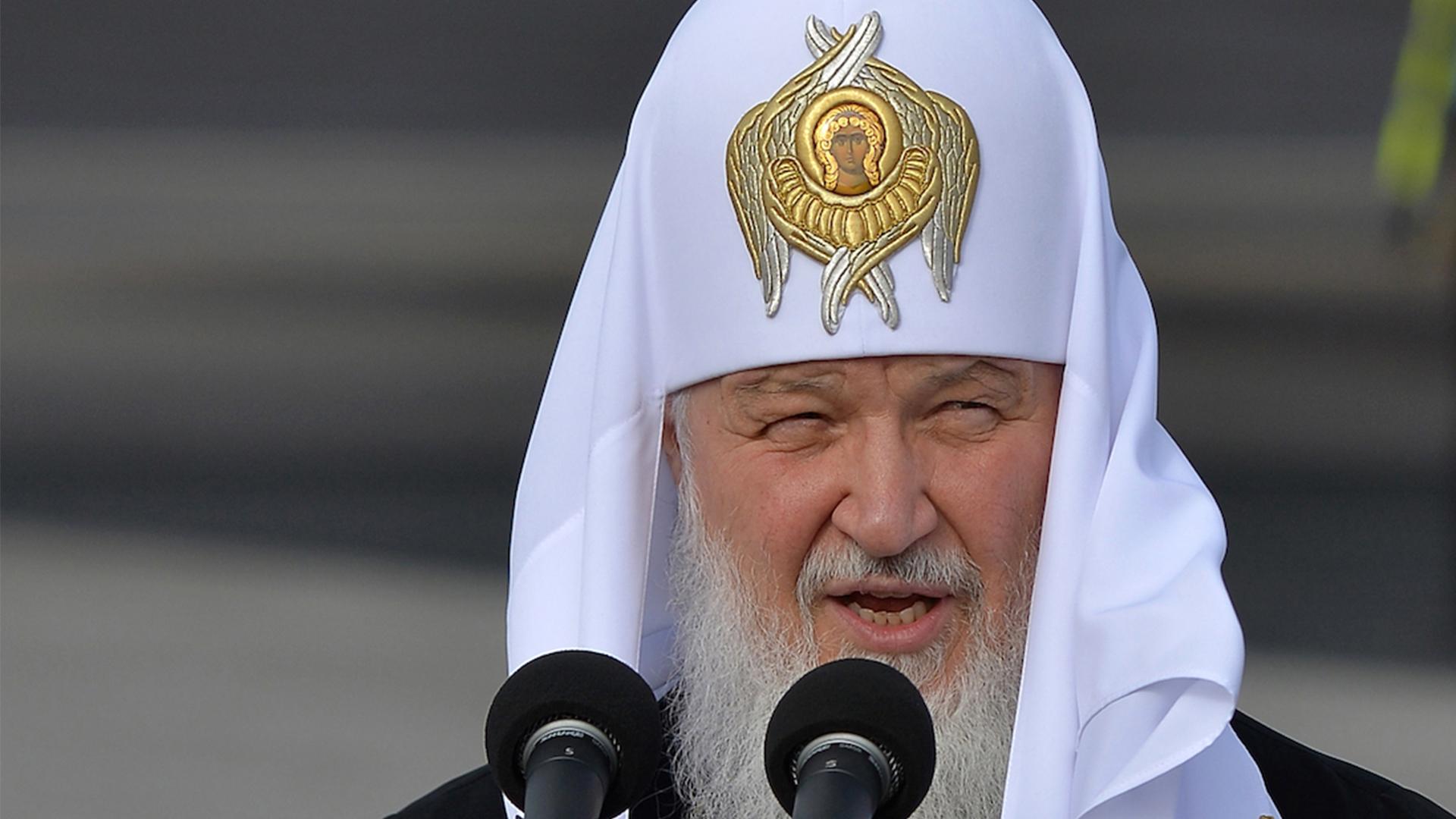Pope condemns Mexico 'drugs cancer'
- Published
Katy Watson: His visit provides a chance to talk about peace, rather than about violence
Pope Francis has urged Mexico's leaders to provide "true justice" to citizens hit by drug violence in the country.
Speaking on the first day of his five-day visit to Mexico, he said drug trafficking was a cancer that devoured and destroyed Mexican society.
He also said that the Catholic Church in Mexico must do more than just condemn drug trafficking.
Earlier, he and Russian Orthodox Patriarch Kirill called for restored Christian unity during talks in Cuba.
The meeting was the first between a Pope and a Russian Church head since the Western and Eastern branches of Christianity split in the 11th Century.
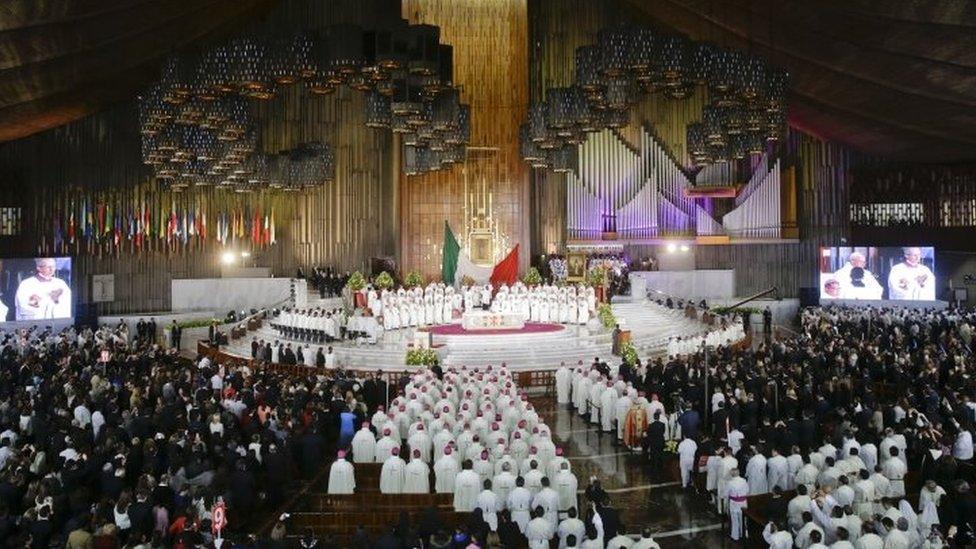
The Pope held a mass in the city at the Basilica of the Virgin of Guadalupe later on Saturday
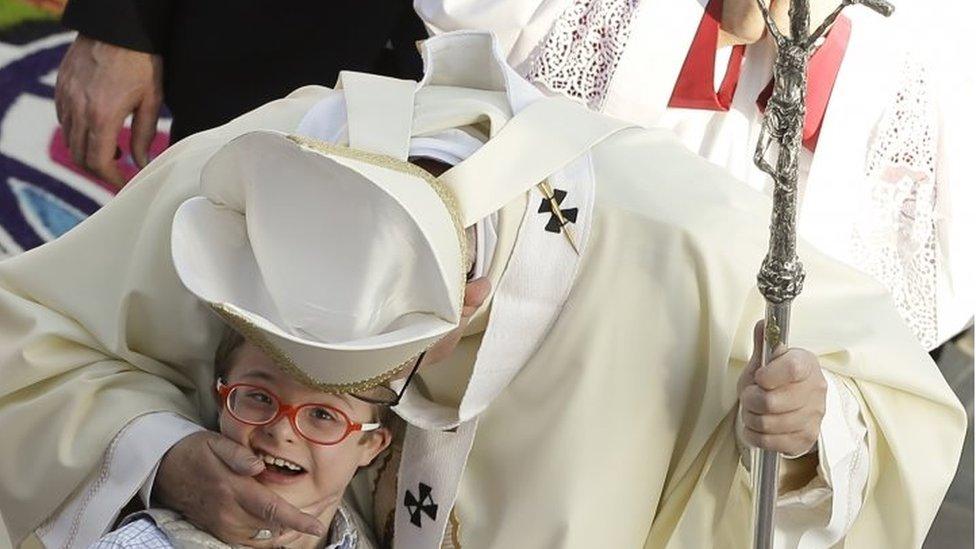
For many Mexicans, the visit to the Basilica was the highlight
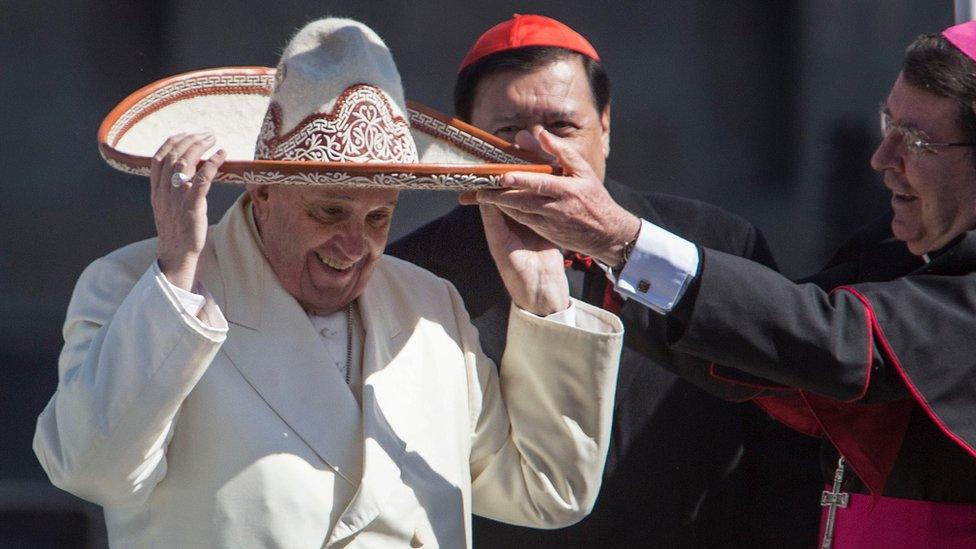
A gift from someone in the crowd
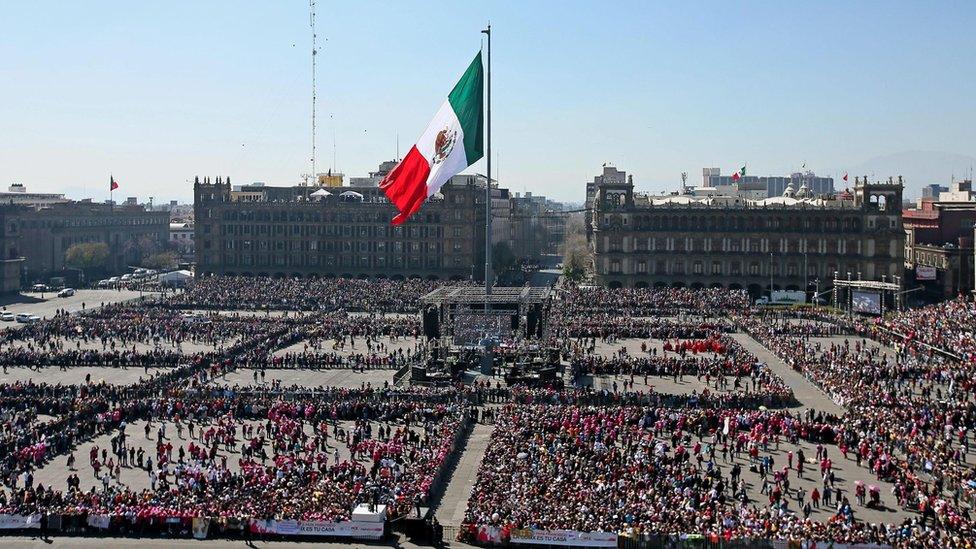
Mexico has the world's second-largest Catholic population
The Pope received a red carpet welcome at the National Palace, the first time a pope had been received there.
Later on Saturday he held a mass in the city at the Basilica of the Virgin of Guadalupe, in front of tens of thousands of people.
The basilica houses the image of a dark-skinned Virgin Mary on a piece of fabric.
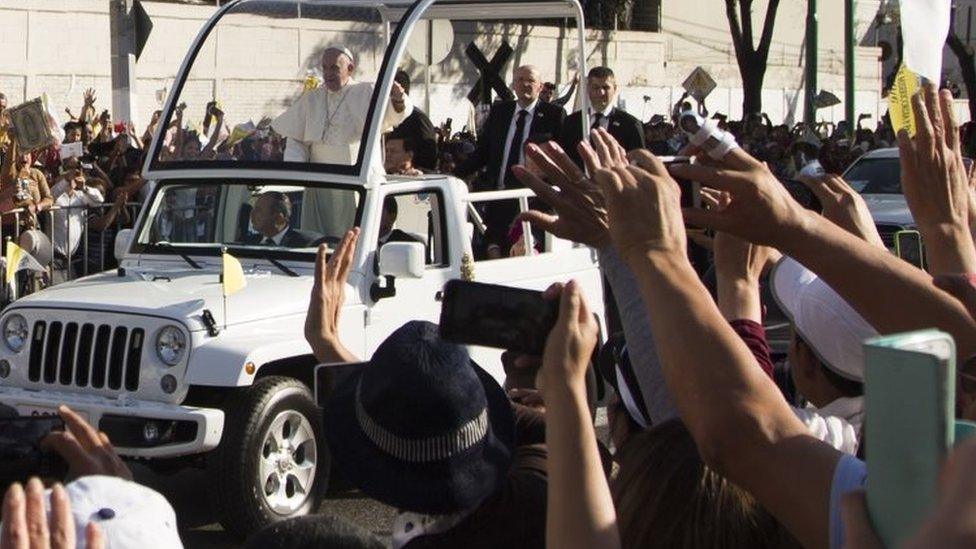
In Mexico City, the Pope was cheered by huge crowds as he travelled in his Popemobile
In his earlier address the pontiff addressed government leaders and made further comments to Mexican bishops.
In his remarks, he warned that a society driven by greed and selfishness was fertile terrain for corruption, violence and drug trafficking.
Pope Francis said the scale of the drug problem meant the Church could not hide behind "anodyne denunciations" and urged Mexican bishops to tackle it instead with "prophetic courage".
Correspondents say his speech uncomfortably exposed the church's shortcomings and generated only lukewarm applause, with just a handful of bishops standing in ovation.
Mexican President Enrique Pena Nieto responded by saying "the Pope's causes are also Mexico's causes".

At the scene - BBC Mexico and Central America correspondent Katy Watson
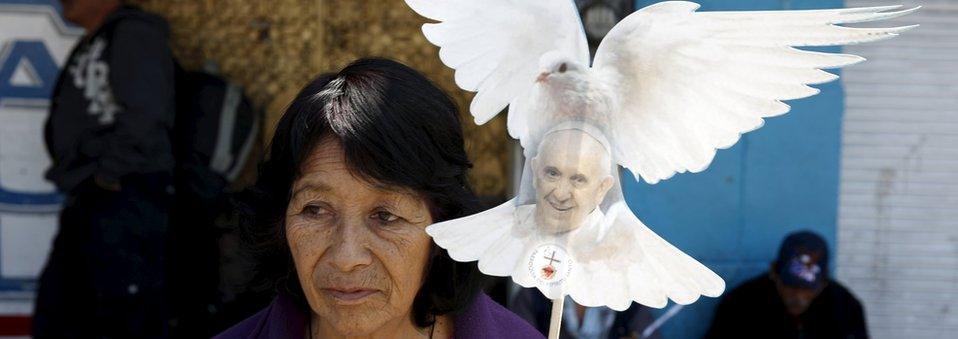
Many people I have spoken with today have welcomed the Pope's visit because he is prepared to say things that the government often appears to ignore.
For many Mexicans, the highlight of the Pope's trip is his visit to the basilica, Mexico's patron saint and a regional icon. People here say they are so proud that he has taken the time to pay his respects.
Lining up along the route to the Basilica, I spoke to one woman who had come from Los Angeles to see the Pope - two years ago she had been given six months to live after being diagnosed with cancer. But she survived, she says, thanks to a miracle.
Another young lady came from Puerto Rico - she had just turned 15 and thought this was the best way to celebrate.

Mexico has the world's second-largest Catholic population and his speech was cheered by crowds standing outside the palace in the city's historic Zocalo square.
The BBC's Katy Watson in Mexico says many Mexicans have a soft spot for this Pope because as a fellow Latin American, they feel he understands them and gives them a voice, especially at a time when many are disillusioned with endemic corruption and violence in the country.
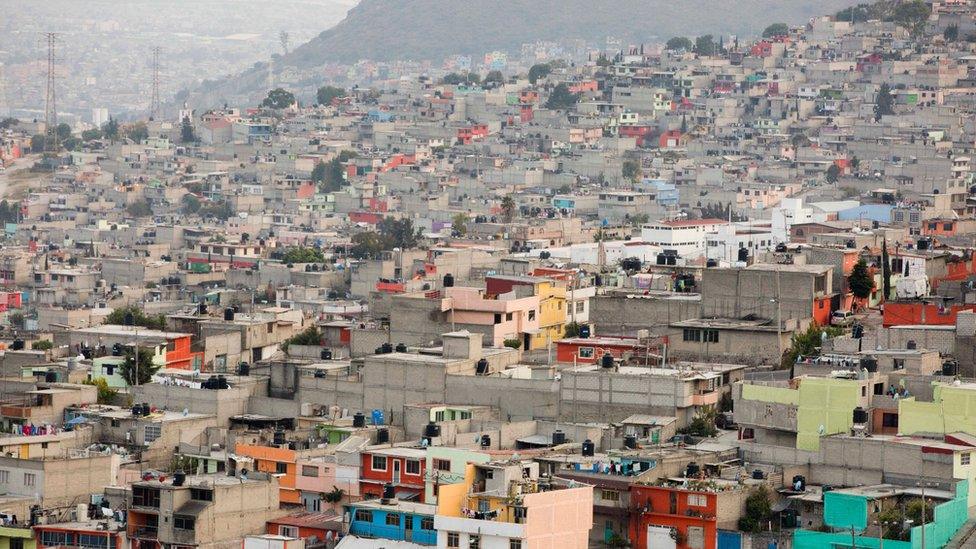
The Pope will visit Ecatepec, which has seen a surge in murders of women
Catholics believe the image became imprinted after the Virgin Mary appeared before an indigenous Mexican in 1531.
He will also visit some of Mexico's poorest and most violent regions.
On Sunday, he will lead an outdoor mass in Ecatepec, a Mexico City suburb that has seen a spate of murders of women.
He will also travel to the country's poorest state Chiapas, the western state of Michoacan where farmers have formed vigilante groups to fight drug cartels.
Also on his itinerary is Ciudad Juarez on the US border, a city so beset by drug violence that it was at one point known as the murder capital of the world.
- Published28 October 2022
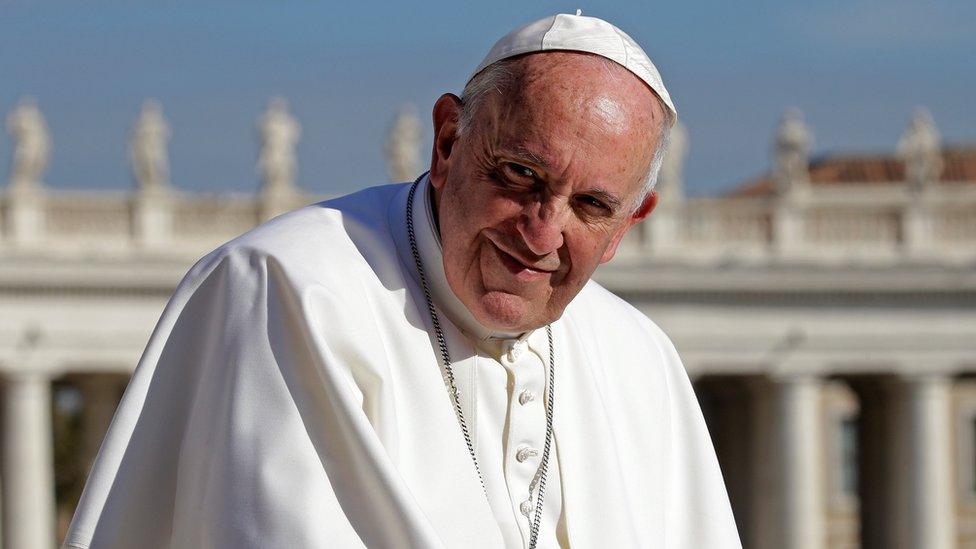
- Published10 February 2014
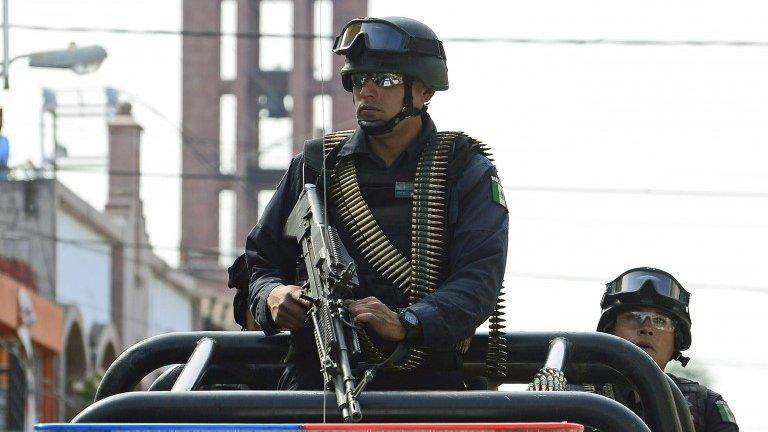
- Published11 February 2016
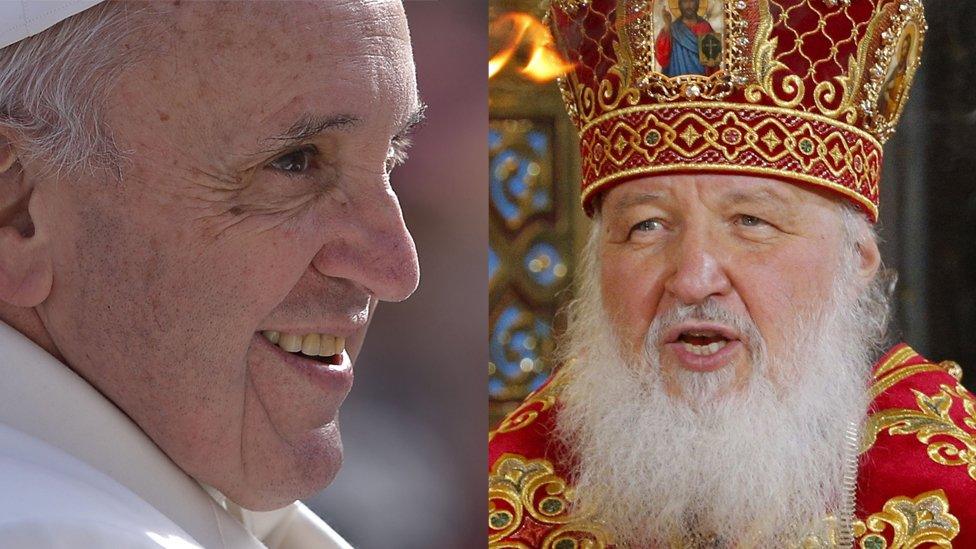
- Published12 February 2016
